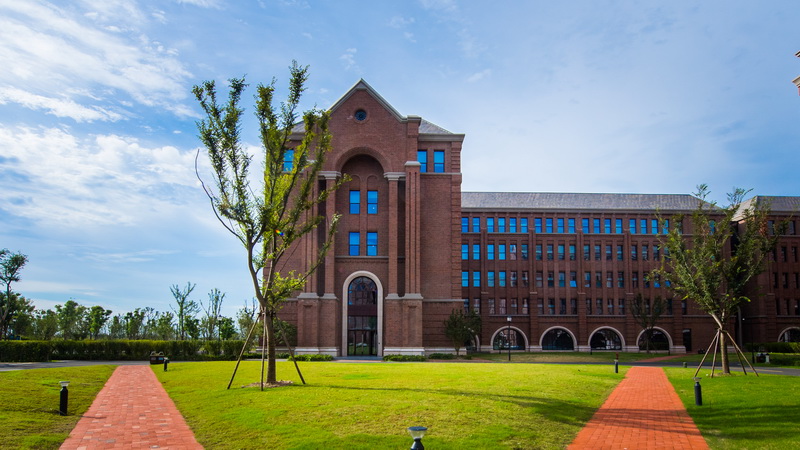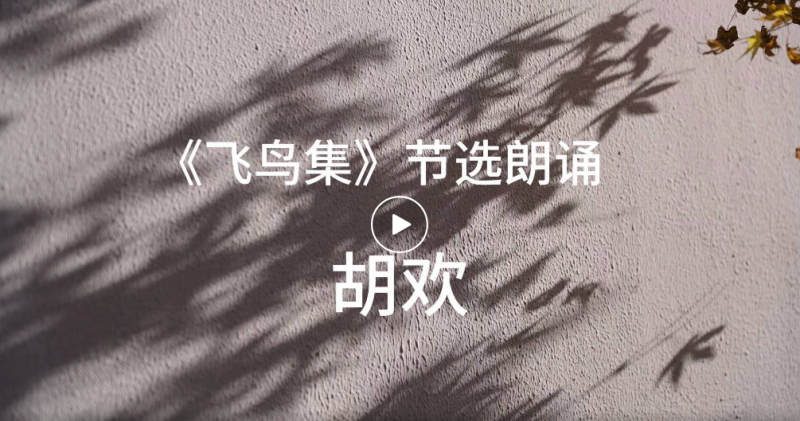A study room serves as both a sanctuary for the soul and a crucible for thought. To a scholar, such a study room is more than a treasury of knowledge, it is a reflection of their unique character and inner spirit. On this chilly winter day, let us explore Professor HU Huan’s “Spiritual Coffee Book Bar” and discover how a scholar creates a refuge for the soul amid life’s chaos.
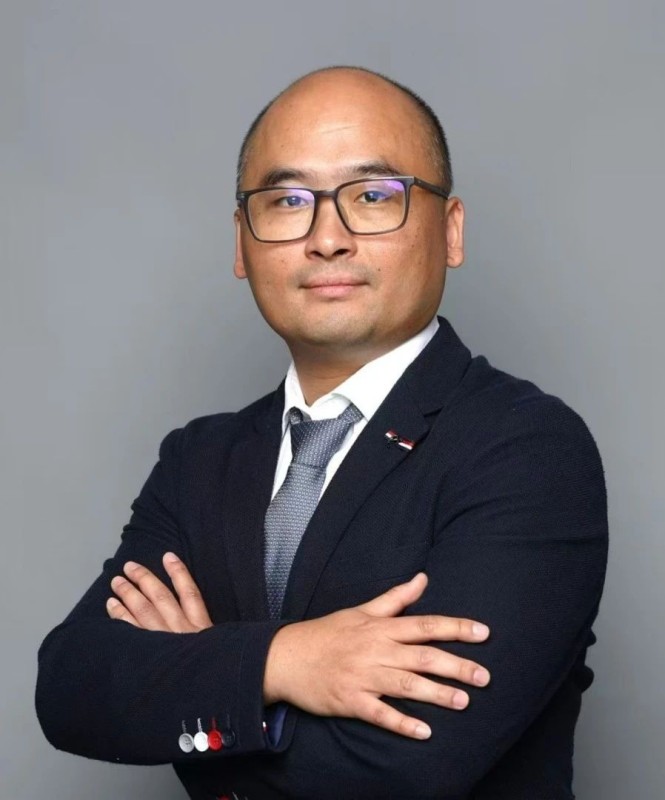
HU Huan, from Tongling, Anhui, earned his bachelor's and master's degrees from Tsinghua University and later obtained a Ph.D. from the University of Illinois Urbana-Champaign. He is currently a tenured associate professor, doctoral supervisor of Zhejiang University.
【01 Coffee and Books】
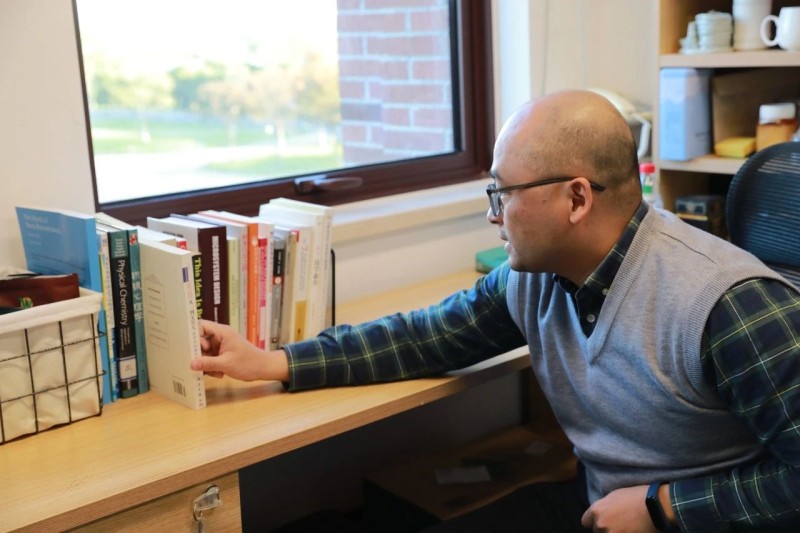
Professor HU Huan’s study room is quite unique, it’s always accompanied by the smell of coffee. He mentioned: “I have a coffee machine in my office, along with a collection of coffee beans I’ve collected from around the world.” Whenever friends visit him, he personally brews them a cup of coffee. “Coffee always lifts the spirits and sharpens the mind,” he adds. He recalls an amusing remark from his industrial mentor during his internship at the GE Global Research Center: “A physicist is a machine that turns coffee into papers.” Since then, whenever he immerses himself in piles of books, a cup of coffee is always by his side.
If I were to come up with a name on the spot for my study room, I might call it the 'Spiritual Coffee Book Bar,” said HU Huan. "When work gets overwhelmingly busy, to the point where my brain feels like it's turning into a machine, I turn to poetry for a break. ‘Stray Birds,’ and the author Xu Zhimo's ‘Saying Goodbye to Cambridge Again’… even a brief reading session allows me to empty my mind and immerse myself in the verses. It feels as though my soul is nourished and my spirit healed. That’s why I believe books are truly ‘food’ for the soul.”
My Reading Preferences
“My reading preferences often lean toward popular science. For instance, George Gamow's One, Two, Three... Infinity simplifies complex scientific concepts making it easy to understand. Additionally, my Ph.D. advisor once recommended Stephen Covey’s The 7 Habits of Highly Effective People, a classic in personal and professional development. I also explore bestsellers across diverse themes, such as sociology, success strategies, and autobiographies of notable figures. Of course, my bookshelf wouldn’t be complete without poetry collections from luminaries like Tagore and XU Zhimo. These works serve as a sanctuary for my soul, bringing peace and tranquility to my inner world.”
“I often see books as a way to form meaningful connections. Take, for example, the book called Methods and Techniques for Writing Graduate Thesis Proposals by Professor GAN Yang from Harbin Institute of Technology. I had the privilege of visiting him in person and was honored to receive his autograph. Not only did I keep a treasured copy for myself, but I also purchased dozens of copies as gifts for the students in my research group. From my perspective, building human connections doesn’t rely on intricate formalities; a single book can serve as a bridge linking our hearts and minds.”
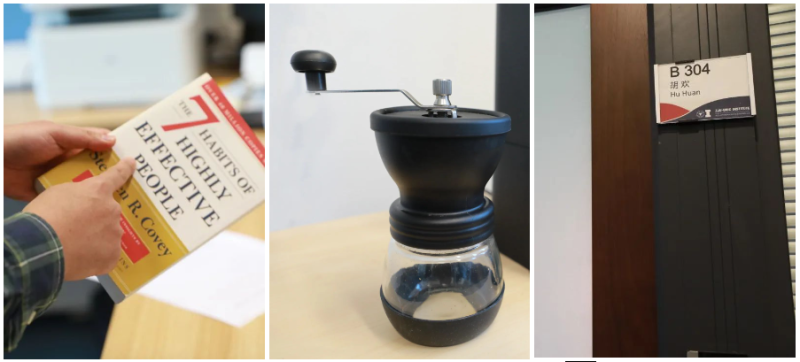
【02 Tsinghua and Doctoral Cap】
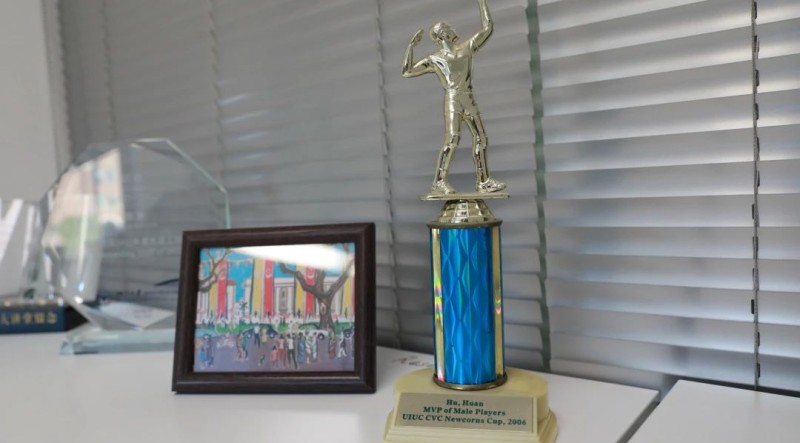
“When I was young, my parents usually didn’t let me go out alone, so I spent most of my time at home reading books, finishing everything I could find. In college, I focused on sports and playing the flute. Apart from golf, I tried almost every other ball game and even earned third place in the first beach volleyball competition at Tsinghua. I also participated in music appreciation courses and activities, listening to a lot of symphonies and traditional Chinese music. I joined the university's Chinese music ensemble too. Although my flute didn’t have perfect pitch and the conductor often criticized me, my understanding of music certainly improved (laughs). Sometimes, I have this feeling that today's students' lives are too heavy with academic work, and they lack the time to explore their own interests which is truly a shame.”
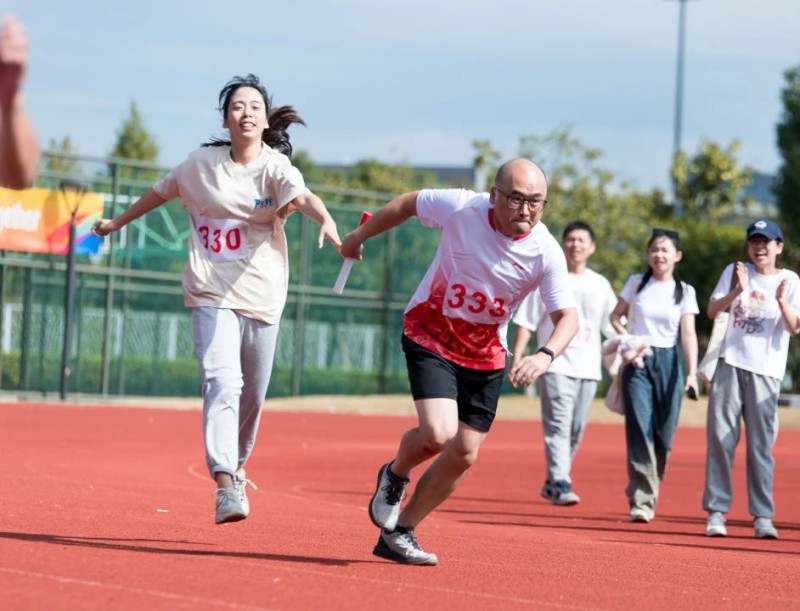
“Upon completing my master's degree, I was fortunate to meet a wonderful mentor. After my mentor graduated with a Ph.D. from Tsinghua, he went to the Netherlands for further studies and completed his postdoctoral research. By the age of 28, he had been promoted to associate professor at Tsinghua, full of ambition and vitality. Our conversations were always straightforward; he would ask me, 'What do you want to do? What are your future goals?' As an emotional person, I was deeply inspired, recommended, and encouraged by this mentor, gradually gaining clarity in planning my own future. Ultimately, I decided to pursue a Ph.D. abroad. For young people, encountering such a professional or life mentor at the start of their career is truly a blessing.
Studying Abroad
“During my time studying abroad, I didn't particularly focus on any specific area of reading and was more focused on the experiments at hand. However, my Ph.D. journey involved many ups and downs, and what I mainly learned during those years was how to manage my anxiety. After all, a Ph.D. really takes a lot of years to complete (laughs). I believe that being aware of your emotions is crucial. Sometimes, a person might not even realize when they’re feeling off, which can be very detrimental. Being able to recognize shifts in your emotions, reading something to nourish your mind, and taking steps to adjust psychologically—like having a cup of coffee or going for a walk—these are examples of what I call emotional awareness.”
“Speaking of this, I’m reminded of a martial arts character I used to admire: Xiao Feng from Demi-Gods and Semi-Devils. He was a hero with unmatched courage and a strong sense of justice, yet he was also overly harsh on himself. Due to his unique upbringing and life experiences, he could never fully reconcile with himself. In Louis Cha’s writing, the philosophical essence of Confucianism, Buddhism, and Daoism is woven throughout the narrative. When facing adversity, perhaps we could borrow from Daoism’s idea of 'detachment,' learning to let go a little; when experiencing pain, we could embrace the Buddhist notion of accepting and releasing inner suffering in search of peace; and when life is smooth, we need the Confucian values of kindness and compassion to treat others well and contribute to society. I think if Xiao Feng had understood these concepts earlier, if he had developed a clearer sense of awareness, his life might have taken a completely different path.”
【03 Me and Heroism】
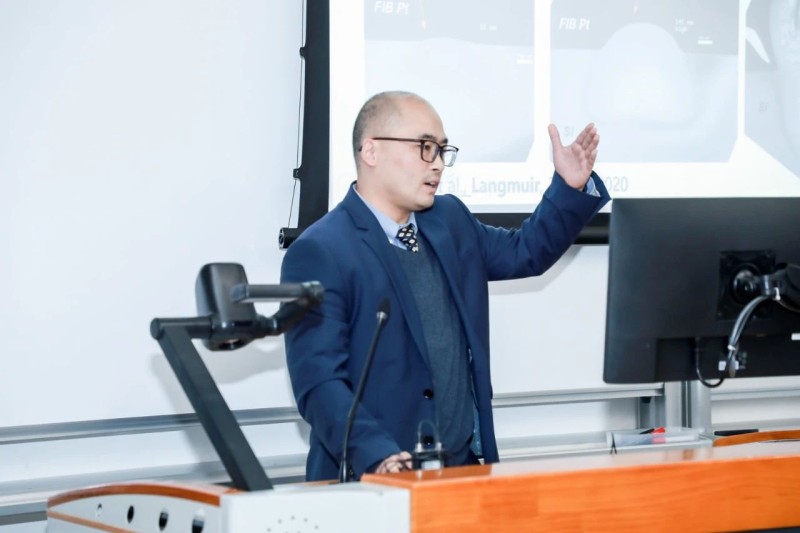
“During my Ph.D. years, around 2013, I had regular communication with my career mentor. Upon learning that I was interested in the education industry, he recommended the project for the establishment of Zhejiang University's International Campus.The conditions here in Haining are actually quite similar to those at UIUC—both have flat terrain and rich cultural heritage. I also have strong feelings for my Ph.D. alma mater, UIUC, so I was eager to apply for a position there at that time.”
“After starting my teaching career, I was fortunate to meet many outstanding senior professors and read their works. In my work, I have received invaluable advice from people like Dean LI Hanying, who is always patient with me. I also had the pleasure of speaking with Professor K.C. Ting, who is very charismatic. Every conversation with him leaves me feeling at ease and has been incredibly enriching.”
Heroism
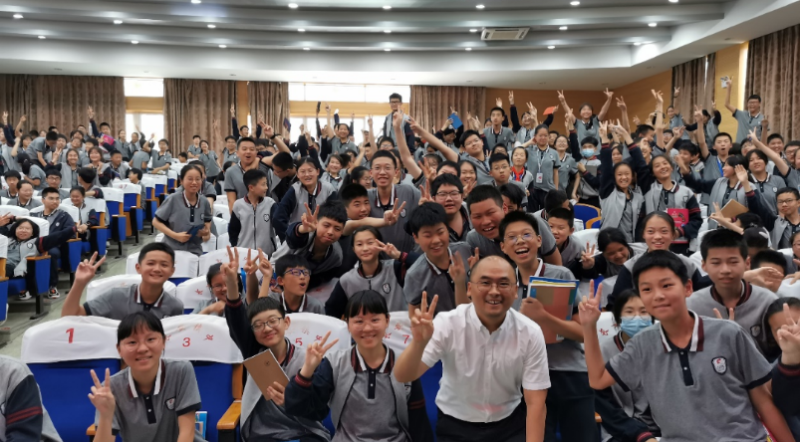
“Speaking of Haining, the name Louis Cha naturally comes to mind. Louis Cha and his martial arts novels have had a profound influence on me. They taught me what it means to be a hero, to embody the spirit and responsibility of one. As a child, my heroes were scientists like QIAN Xuesen and DENG Jiaxian, who made significant contributions to the country. Now, with China’s rise, the country has entered a new era of technological innovation and entrepreneurship. How I can contribute to this era is something I’ve been reflecting on. My current understanding is that innovation and entrepreneurship, particularly in developing new quality productive forces, is a field where university researchers, especially in high-tech industries, can play a pivotal role.”
“As a young faculty member at the International Campus, I aim to push my expertise to its fullest potential. For instance, I want to transform my research findings into practical applications, and also engage in public science education to share scientific knowledge with children. I've already made some attempts, bringing books and preparing questions to conduct science outreach at middle schools. But I feel this is far from enough. In the future, I plan to bring science books I’ve written myself into more campuses, planting the seeds of science and the spirit of public service in children. This may be where I can make a meaningful impact, a path that belongs to me, a form of 'heroic' self-practice.”
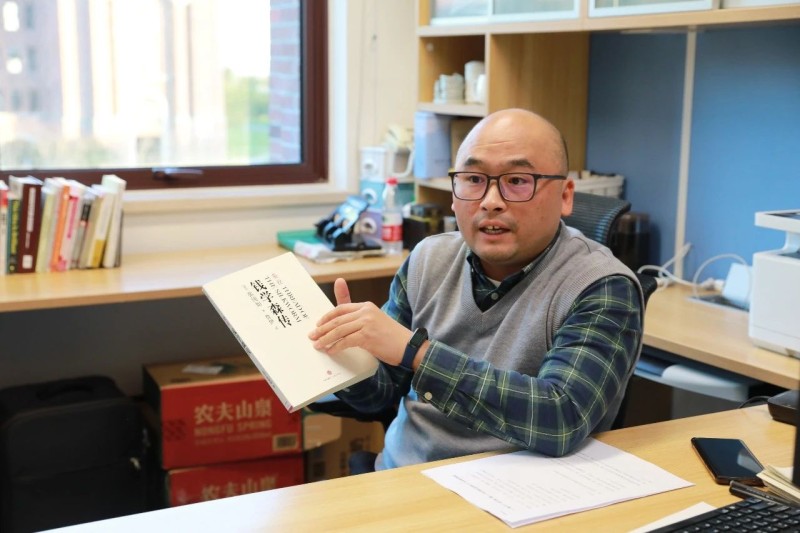
“My current favorite book is Silk and Steel: The Biography of Qian Xuesen by my University of Illinois alumnus, ZHANG Chunru. In this book, QIAN Xuesen is portrayed not as the 'perfect' figure we often hear about, but as a real, flesh-and-blood person. ZHANG Chunru conducted thorough research, showcasing aspects of Qian's work life, personal life, and family situation. It presents a more authentic and objective view, which helps us better understand QIAN Xuesen in the context of his time.”
【Recommendations】
1. Silk and Steel: The Biography of Qian Xuesen Author: Zhang Chunru
2. One, Two, Three…Infinity Author: George Gamow
3.The Writing Methods and Techniques for Graduate Thesis Proposals Author: Gan Yang
4.The 7 Habits of Highly Effective People Author: Stephen Covey
【Conclusion】
As the interview drew to a close, Professor HU Huan personally ground and brewed a cup of coffee for us. Amidst the rich aroma of the coffee, he mentioned his hometown, Tongling in Anhui. He shared that his hometown is rich in mineral resources, but traditional mining is not a sustainable path. He expressed that if, in the future, he could use what he has learned to give back to his hometown and contribute to the development of Tongling, especially in the high-profit copper industry, it would be his greatest honor.
Planner: XU Shunan
Article: LIN Suting
Photography: QIN Difan
Translation: ZHU Linyi
Editing: LIN Suting, LIU Shuaiyin
Editing in charge: ZHANG Yi
Reviewer: YANG Yi
Final Review: QU Haidong


